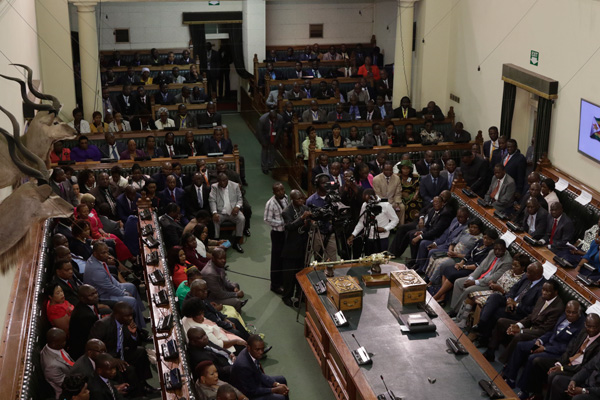
BY VENERANDA LANGA
LINE ministries are said to be breaking regulations under the Public Finance Management Act (PFMA), which compel them to submit monthly and quarterly financial statements and reports to appropriate parliamentary portfolio committees for oversight and monitoring of use of public resources.
This was revealed in a recent report by the Parliament Budget Office, which exposed that generally compliance levels by ministries were unsatisfactory and blasted the poorly structured content in the reports. The Parliament Budget Office named the defaulting line ministries.
The issue also comes amid revelations last week, during the sitting of the Tendai Biti-led Public Accounts Committee (PAC), that the Finance minstry and the Reserve Bank of Zimbabwe have been breaching the law through excessive borrowing to finance government’s budget deficit.
Government has been financing its deficit through borrowing from the central bank, while going over the RBZ Act statutory limit. The Act stipulates that borrowing from the central bank should not exceed 20% of the previous year’s revenues. But as of December 2018, total lending by the bank to the government was more than $3 billion, representing 75% of 2017 revenues.
“The PFMA compels every accounting officer to submit monthly and quarterly financial statements and report to appropriate parliamentary portfolio committees, and the idea behind these provisions is for Parliament to monitor use of public resources in line with its financial oversight functions,” the Parliament Audit Office report said.
“Generally, compliance level remains unsatisfactory as we (Parliament) target 100% compliance, and an assessment of the submitted reports revealed some inconsistencies and lack of requisite information as ministries are submitting reports that are financial in nature but lacking detailed explanations on activities, outputs and progress on implementation of planned activities.”
The ministries fingered as having zero submission of reports are the Justice; Health; Foreign Affairs; Transport; Lands; Energy and Power Development; Higher Education and Sport, Arts and Recreation.
- Chamisa under fire over US$120K donation
- Mavhunga puts DeMbare into Chibuku quarterfinals
- Pension funds bet on Cabora Bassa oilfields
- Councils defy govt fire tender directive
Keep Reading
The ministries said to be 100% compliant include Finance, Industry and Commerce, Mines, Defence and War Veterans, and Media, Information and Broadcasting Services. The rest of the ministries were said to be sometimes compliant.
“In the 2018 financial year, only five complied with quarterly submission requirements and nine consistently submitted the monthly reports. The compliance level increased in the first half of 2019 with 13 ministries having submitted the first quarter reports representing 55% increase in the compliance level.”
Parliament said the major challenge was the content and structure of the reports by ministries, which lacked detailed information sufficient to track the implementation of policies and programmes by government.











